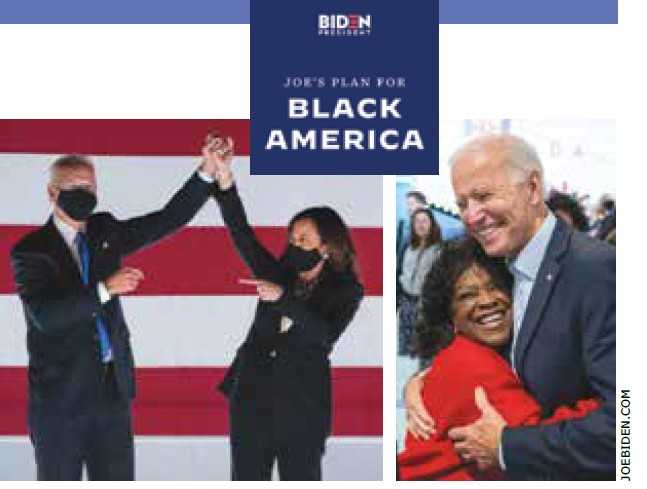
By Derek Barnes–
In the wake of the disproportionate impact of COVID-19, police brutality, social unrest, and widening economic inequality, a good friend recently reached out and wanted direction on ways to help end “systemic racism.” What a thrilling and bold stance he’s taking on, I thought. Explicitly, he asked if I had any thoughts on how he could help or make a philanthropic contribution. Like so many people I know, he admittedly acknowledged his limited knowledge of historical context regarding racial disparities in the U.S. Understanding interconnected social issues is a critical step before knowing where to start or what to do that might help bring lasting change.
In our exchange, we concluded that terms like “systemic racism” or “structural racism” are redundant. By definition, racism is a system or structure designed to perpetuate conditions that harm, disadvantage, under-resource, and devalue along dimensions of race or color—those who are not in, or who hold, majority power. A set of conditions must exist that intentionally targets a group through prejudice, privilege, and power.
I realized that to answer my friend’s question, we must look at America’s economic and social practices that perpetuate racism. This is often a hard pill to swallow for many white people because it cuts at the core of our economic models, social contracts, and personal beliefs. The legendary activist Angela Davis reminds us that there is a strong correlation between capitalism and racism. The connection was devised by America’s earliest social architects, and then legislated over time into our democracy.

To build early economies in America, the explicit goal was to extract as much value from inexpensive sources of labor (enslaved people who held little power) and then to distribute benefit through a hierarchical structure—a disproportionately greater benefit to a few who have the most power. Our models of modern capitalism still rely on this blueprint. However, philanthropy, Greek for “love of mankind,” can be the great equalizer to the rampant forms of capitalism we experience today.
So, how did we get here? First, we must recognize that we’ve all been fed steady doses of mythologized history. Many people, including whites, were enslaved globally for thousands of years before Europeans “discovered” The Americas—already inhabited by indigenous people who built thriving civilizations. However, America began to enact laws to uphold slavery and inequality by race and color in the aftermath of “Bacon’s Rebellion” in 1676. This was America’s great innovation, which led to a civil war, and was exported around the world. To “fix” racism means that we must openly interrogate and reform our economic systems, as well as the executive, legislative, judicial, and political systems that support their coexistence with democracy.
With all this in mind and to provide more context for my curious friend, I referred him to Joe Biden’s “Lift Every Voice” plan—named after a song from a poem written by James W. Johnson in 1899. The plan explicitly targets advancement in Black America, where philanthropic opportunities might help to focus my friend’s interest on an area of the plan that aligns with his passion. It’s also a best-kept secret that more people should be talking about.
The stakes are so high in the upcoming election and heralding a plan like this could be a game-changer. In terms of a philanthropic agenda via policy, Biden’s programs offer a great deal of substance. And like so many previous activists already knew, when we lift and protect the most vulnerable in our society, we lift everyone. That’s how our humanity is tested. The plan is audacious and intricate—taking decades to ultimately fulfill its promise. I would categorize the essential areas into this five-point plan:
When you take a more in-depth look at the plan details beyond all the policies and rhetoric, you’ll find various programs and resources that come together to address the harm caused by systems already in place. Biden’s “Lift Every Voice” plan is a mash-up of Booker, Buttigieg, Castro, Harris, and Warren’s plans for Black America ( https://joebiden.com/blackamerica/ ). It’s no accident that Biden’s plan also universally improves conditions for rural and metropolitan communities, the working and middle class, and the poor. Here are just a few program examples:
Over the last six months, it has occurred to me that we blindly consume propaganda and mythical American history. We glorify atrocities and celebrate the undeserved victories of American patriarchs while undermining and dismissing others’ contributions. We’re shielded from our shared history, so engaging critical thinking and solving longstanding problems that plague us today is challenging. In a post-Civil Rights Movement era, we’ve also managed to obfuscate lingering racial issues and drive racist attitudes underground. Still, recent events have reopened old wounds and fueled more overt racial flames.
Ending racism in America is a significant undertaking because it’s embedded in nearly every part of our democracy and economy. Nothing has exposed these truths more than the impact of economic recessions, failing social safety nets, murders of unarmed Black people, and greater deaths due to poor access to quality healthcare. Everyone should support restorative and comprehensive policies at the local, state, and federal levels with their vote.
New legislation and reform are certainly required. However, we also need to change enough hearts and minds of more people. Let’s convince them that it is in their best interest to finally level the playing field and reverse the harm that has been done. Racial justice and equality for all is not a zero-sum game.
I’m excited that my good friend is choosing an empathetic path and a mission of reeducation to provide historical context about race in America. My greatest hope is that he is empowered to make the philanthropic choices that are most meaningful to him. I know his contributions will have a significant impact in achieving racial justice while he shares his new discoveries and knowledge with others.
Derek Barnes is the Chief Operating Officer at g-dii Enterprises
( www.g-dii.com ) and a Senior Consultant at Ignition Point Consulting. He currently serves on the boards of Horizons Foundation and Homebridge CA. Follow him on Twitter @DerekBarnesSF or on Instagram at DerekBarnes.SF.
Published on September 10, 2020




Recent Comments